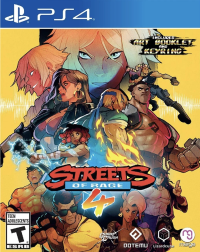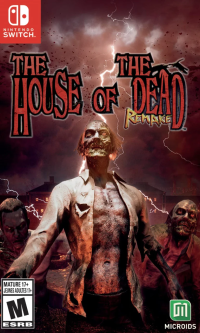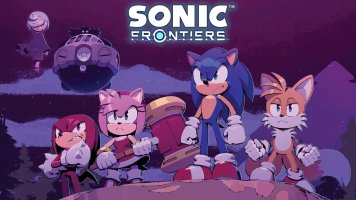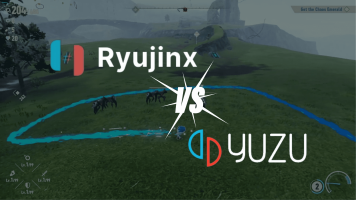However, did you notice one very usual thing about all of these ventures – there's no sign of the Sega logo on their packaging or promotional material, and, in many cases, the Sega logo isn't even displayed in the game itself, either.
We've always found this a bit odd, and it looks like we may have a (partial) answer to why it happens – and it's all to do with the fact that none of these ventures were produced by Sega itself but were instead created by external companies under license.
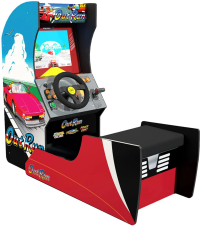 Arcade 1Up's OutRun cab was a close match to the original save for one thing – there's no Sega logo on it — Image: Arcade 1Up
Arcade 1Up's OutRun cab was a close match to the original save for one thing – there's no Sega logo on it — Image: Arcade 1UpSpeaking to Super GameRoom Dudes at the end of 2023, Numskull and Quarter Arcades boss Ben Grant briefly discussed the possibility of 1/4 scale Sega cabs joining the range – and he elaborated on why it hasn't happened as yet.
I'm not sure people are aware of this, [but] if you manufacture a product, you cannot put the Sega logo on. The Arcade 1Up OutRun doesn't have the Sega logo on it. Sega has this rule that unless it's manufactured by Sega, it cannot have the Sega logo on it.
Grant admits that Quarter Arcades has previously tried to secure a licence with Sega and was turned down because the Japanese giant was working on something similar (which may have been the Astro City Mini), but he adds that Quarter Arcades is keen to make its cabinets as close to the original machines as possible – and Sega's rule on the use of its logo means that any resultant cabs wouldn't be 100% authentic.
We are true to our products; [they] are 99.9% close to [the] original machines, so not having the Sega logo on Golden Axe or OutRun sort of jars with me slightly, and there's no way around it; it's it's a straight no. We manufacture other products for Sega, and we cannot put Sega on any of them. So [any arcade cab] wouldn't be a true replica.
Grant adds that even though Numskull runs the official Sega Shop in Europe, it cannot even create a T-Shirt with the Sega logo on it. He feels that Sega's stance is clearly based on the need to protect its brand as much as possible.
It's worth noting that in the past, hardware manufacturer AtGames produced emulation-based reproductions of the Mega Drive / Genesis hardware under license – until Sega itself ended the agreement, with many reviews citing the poor quality of these devices.
Perhaps that is why Sega is so resistant to allowing its name to appear on related products. "It's sort of a seal of authenticity," concludes Grant. "If it's not been manufactured by Sega, then you can't use [the] logo... the answer is a hard no."


